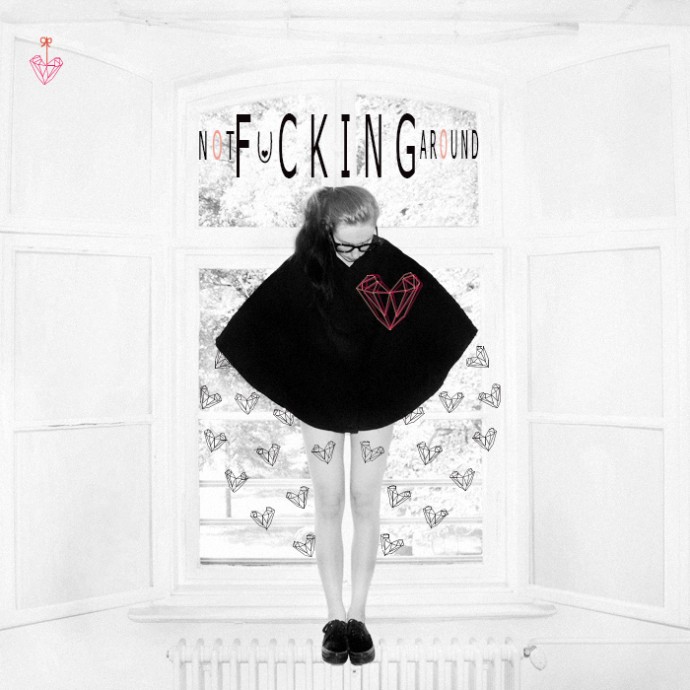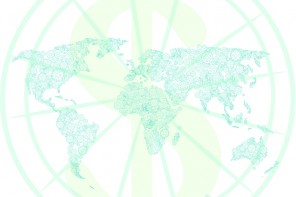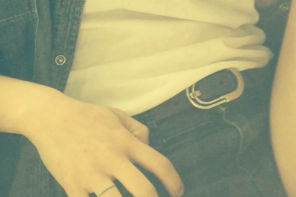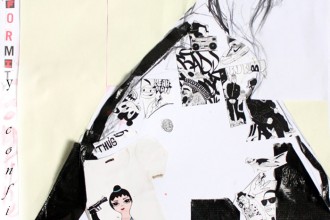Redfern Jon Barrett is a self-proclaimed ‘polyamory propagandist.’ Born in the north of England in 1984, he earned a PhD in 18th century queer literature from the University of Wales in 2010. As a literary and science fiction writer, his works focus on polyamory, other queerdoms, and the exploration of strange, new relationship structures. More information can be found at his website. In this interview, he explains polyamory as an orientation, critiques the unexamined monogamous relationship, and places his sexual identity in the context of his progressive social and political beliefs.
Those who oppose equal rights for lesbian, gay, bisexual, transsexual, and queer people tend to think of these identities as a choice, rather than an orientation. To me, the same issue applies to polyamory. In places like the United States, you can lose your job or even custody of your children for being in a polyamorous relationship. I compared this to my rights as a homosexual and realized that, to a large degree, the discussion surrounding equal rights for homosexuals was related to the fact that it’s an orientation and not a choice. I feel that I am polyamorous. It’s not something I do. If I were in a monogamous relationship, I would be closeting myself and living a lie in much a similar manner as if I were in a relationship with a woman.
I believe that polyamory is an orientation, but that there is a certain degree of flexibility. Some people are more inherently monogamous and some people are more inherently polyamorous. As an analogy, we can liken it to sexual orientation as we currently understand it. Monogamy would be the equivalent of heterosexuality and polyamory would be the equivalent of homosexuality. For people who feel they’re flexible, bisexuality would be the equivalent. Some people’s orientations are open and they can be polyamorous or monogamous, or anything on the scale between those two things. I think that this explains how, for some people, polyamory feels like a choice and for others it feels like an orientation. It’s just like how some bisexual people feel they have a choice between being with a man or with a woman.
We attach moral significance to whether behaviour is a choice or whether it can’t be helped. It’s a patronizing distinction. It shouldn’t matter. If homosexuality is a choice, which it isn’t, it’s no less significant than if it’s an orientation. Sadly, people don’t treat it this way. Our whole moral system is based upon the understanding that ‘if you can’t help something, it can’t be wrong.’ And unfortunately, I don’t think that polyamorous people are going to be able to acquire equal rights until polyamory is considered an orientation. Just as some people will be attracted to men and some people will be attracted to women, some people can love more than one person.
I’ve had a friend tell me that when I really fell in love with someone, I would want to be monogamous. At the time I had already been with one of my current partners for seven years! People assume that you care about someone less if you’re in a polyamorous relationship with them. If someone can’t be monogamous, they are seen as being in the wrong or misguided. At worst, they’re untrustworthy. If someone falls in love with two people in a soap or a TV show, they are a bad person. At best, they are in an unfortunate situation. It’s not something that’s seen as okay. Good people don’t fall in love with more than one person. I’ve had total strangers tell me that I’m untrustworthy because I’m polyamorous. To me, it seems more trustworthy. I’m open and honest about these things.
I’m not really offended; people are afraid. I don’t think that they really mean to be hostile. They find the idea of polyamory quite threatening. People have built their lives based on assumptions that they haven’t had to talk about, and the fact that others have talked about them is threatening. We place a lot of stock into exclusivity and what that means. People should have to question their orientation and think about it. ‘What am I? Where do I fall on this orientation spectrum between monogamy and polyamory?’ I think that this discourse needs to happen, and I think it would be better for everyone, not just for polyamorous people.
The problem lies in the unexamined assumptions we make about the way we should be with people. Monogamy is, at least in straight culture, the assumption. It’s not really questioned. You are monogamous unless you say otherwise, which is a rarity. I think that the first step is to move beyond the assumptions we make about how we interact with people. I’m not saying that people shouldn’t be monogamous. I think that people shouldn’t be assumed to be monogamous.
Somehow, being in a trio is more understandable to others. I never expected that. They see three people in a relationship and that those people are happy. If you just tell someone you are polyamorous, it’s left open to the imagination. They don’t know what’s happening and they assume the worst. When they see a trio of happy people, it’s tangible. They can understand it better. Being in an exclusive trio means that there is an exclusivity because it’s not totally open, but it’s still polyamorous because it involves multiple people.
Polyamory is fundamentally about love. In polyamorous communities, non-sexual love is recognized quite a lot more than in mainstream society. The idea that you can fall in love with someone in a non-sexual capacity with the same passion and intensity, but without the sexual component, is something that I’ve experienced a lot more in polyamorous circles than in mainstream society. Actually, there is less emphasis on sex despite the assumption that it’s just an excuse to fuck around. If you want to fuck around, then you have an open relationship, and not a polyamorous one. Polyamorous relationships are emotionally open, so you can fall in love with other people and that’s acceptable. Open relationships generally refer to sexually open relationships that are emotionally monogamous. In an open relationship, it’s okay to have sex with other people, but to fall in love with them would usually be a problem.
There are people in the polyamorous community, including myself in the past, who believe that society would be better if everybody was polyamorous to some extent. I think that polyamorous people need to recognize that some people’s orientation is monogamous, and that’s okay. However, I do think that there are more people who are in monogamous relationships than there are monogamists. That’s evidenced by the amount that people cheat. Monogamy is a perfectly healthy and valid choice as long as someone does it because he or she doesn’t feel the need to sleep with someone else, not because he or she wants to stop someone else from sleeping with other people. I believe that the choice should come from his or her self, rather than from the desire to control someone else. People whose orientation isn’t monogamous being forced into monogamous relationships will only lead to disappointment and conflict.
I’m a socialist and I don’t think we’ll ever be able to move away from a society based on ownership if we’re still owning people. We live in a very possessive society that views jealousy as natural and healthy. I don’t think that jealousy is natural or healthy. We need to move away from possessing other people, and I don’t think we’ll ever move on as a society or away from this hoarding mentality whilst our closest relationships are based on these principles. How can we ever be truly socialist, or anarchist, or communal, in any sense, if we still don’t live like this in our personal relationships? I don’t think it’s really possible. Of course, you can still be monogamous and not possess or control someone, and polyamorous people can still be possessive in different ways. So, polyamory is not a cure, but it can be useful by providing a space in which these issues can be questioned.
I don’t think we realize that a sexual revolution is occurring right now. It’s just as large, and possibly even more more wide-ranging, as the one in the 1960s, and polyamory is a part of it. When queer culture comes closer and closer to home, there is an unavoidable level of self-questioning that takes place. You’re forced to look at things that you wouldn’t normally have to. Polyamory adds to this. It complicates things, but in a good way. Every society believes that the way it does things is the way things have always been done, and always will be. This is simply not true. Our society will be very different in a hundred years. I think there will be a lot more polyamorous relationships, and that it will have gained legal recognition. After we’ve moved on from the struggle for same-sex marriage rights, the next round will be for the rights of transsexuals. Finally, the struggle for the rights of the polyamorous will hit the mainstream. This movement is coming and, in many ways, it’s already here.








Pingback: NEWSFERN » redjon.com()